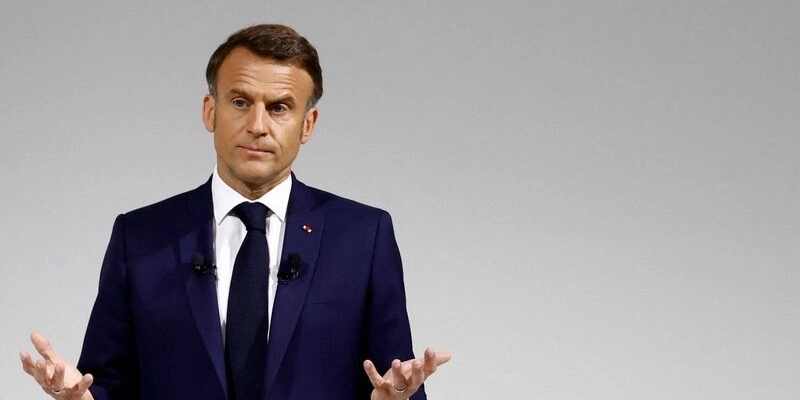Following the elections to form a new parliament in the European Union (EU), which concluded on June 9, provisional results indicate a resounding defeat for Emmanuel Macron‘s party against Marine Le Pen‘s, with a difference of more than 15 points.
In light of these reflected numbers, the current president of France made a radical decision accompanied by the declaration “I have heard your message”: the leader would bring forward the national parliamentary elections to June 30 for the first round and July 7 for the second.

While the loss of seats in the EU legislative power does not directly affect the French Republic, it served Macron to understand that the majority of citizens are dissatisfied with his government, hence the advance, arguing that he will not let this go without a response.
Additionally, the potential next Prime Minister of the winning party Rassemblement National (RN), 28-year-old Jordan Bardella, had openly requested the president to call for parliamentary elections.
However, beyond the failure of the liberal coalition, there is an emerging phenomenon reflected in other European nations as well: the victory, overwhelming in some cases, of the EU far right.
Indeed, Le Pen‘s case is not unique, as the wave of far-rightism dominated countries such as Italy with Giorgia Meloni, Austria with the Freedom Party of Austria (FPÖ), and Belgium with Vlaams Belang, where polls positioned it as the winner, leading Prime Minister Alexander De Croo to resign.
Similarly, in Germany, this trend has also experienced exponential growth, with the Alternative for Germany (AfD) being the second strongest party, as well as in the Netherlands, where Geert Wilders‘ far-right party could be the second most supported at the polls.
Therefore, Macron declared: “France needs a clear majority in serenity and harmony.”
And he adds that he cannot resign himself to the advance of the far right across “the entire continent.”
What is Le Pen’s position on electric mobility?
Although the leader of the far-right party has not made many statements about electric vehicles (EVs), her ecological project brochure includes a measure that intrinsically affects electromobility.

Indeed, if the Rassemblement National comes to power, it is likely to take a firm stance against the “Green Deal” and other ecological measures imposed by the EU.
This could also include withdrawing from the Paris Climate Agreement and opposing environmental regulations deemed harmful to the French economy.
“Our project will put an end to artificial ecology, based on the lie of globalism; each ecosystem is unique,” states the document.
And adds: “It is even more to hide reality; nowhere will ecological progress be successful if it is not chosen and desired by the majority of citizens.”
While this does not necessarily mean opposition to clean mobility, the faction could propose an alternative approach focused on strategic autonomy and sustainable development.
What does this mean? They could implement policies that promote the production and consumption of national energy, as well as investment in green technologies.
For example, among the 22 measures published for the 2022 elections (in which Macron defeated her), the candidate included reducing VAT from 20 per cent to 5.5 per cent on energy products such as fuels, heating oil, gas, and electricity, considering them essential goods to meet basic needs.
This provision could have a counterproductive effect, because while it reduces the price of energy (which could benefit EVs), it also does so for diesel.
Additionally, it is likely that Le Pen’s party would seek to protect small French businesses from the administrative burdens associated with environmental regulations, eliminating certain restrictions, and promoting a more favourable business environment for local companies, according to the document.
Finally, they would execute a pause on wind and solar energy, with a plan to gradually retire sites, starting with those at the end of their life cycle, and suspend subsidies, acquiring energy at market prices.
For carbon-free, economical, and accessible electricity, they would promote the development of renewable energies such as hydroelectric and geothermal, along with the boost to nuclear energy and the hydrogen industry.
The goal is to reduce the cost of electricity for households and industries, facilitating industrial relocation and eliminating energy poverty for many households.
Regarding the future of the subsidy for the purchase of zero-emission cars, the renowned “eco-bonus,” remains uncertain.
In light of the aforementioned policies, it could be speculated that it might be discontinued, but there is no certainty of any kind.
Likewise, it is worth noting that the candidate for the next national election is yet to be decided, and Macron’s mandate has three years remaining, even though the Parliament holds significant power to repeal or eliminate laws.








